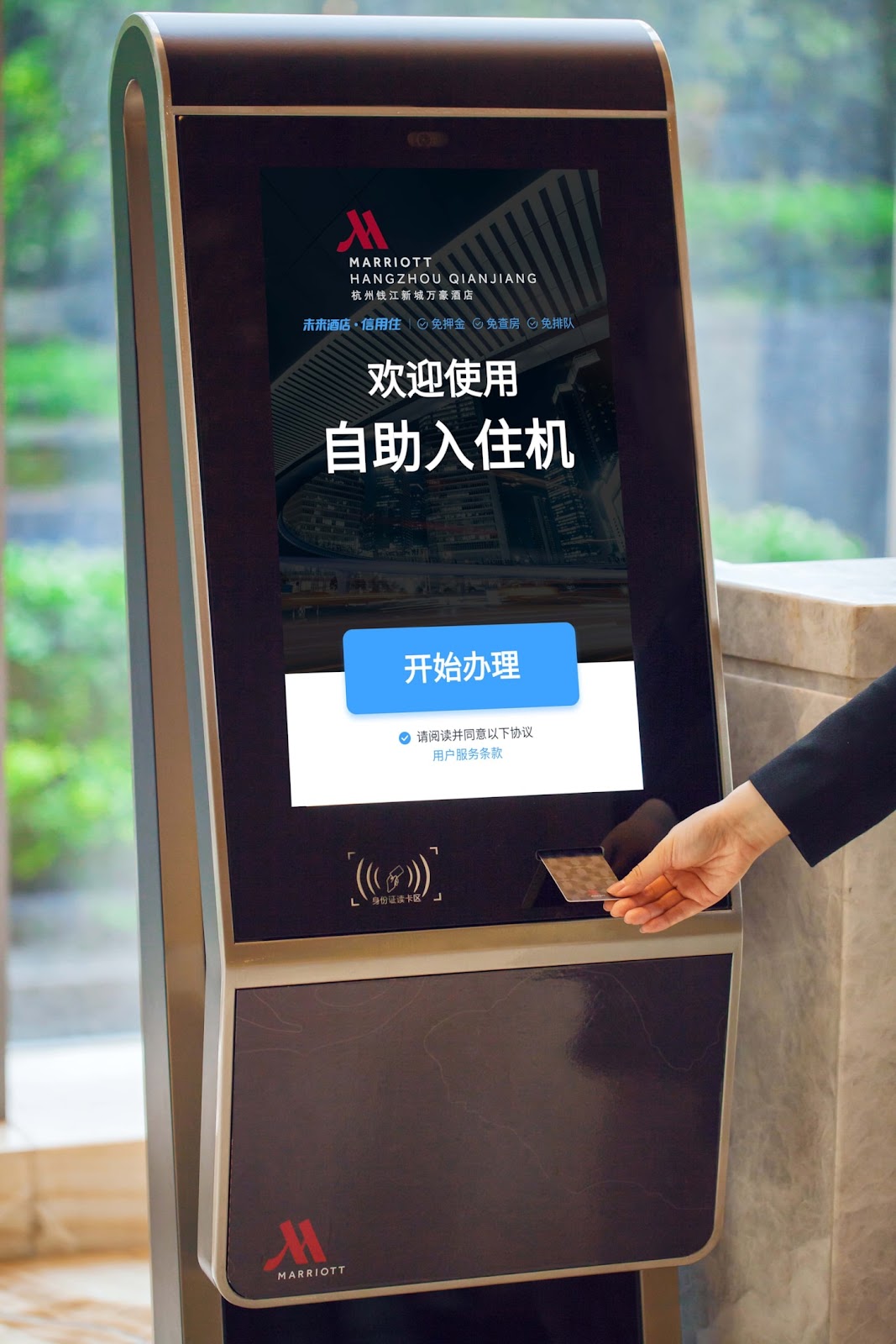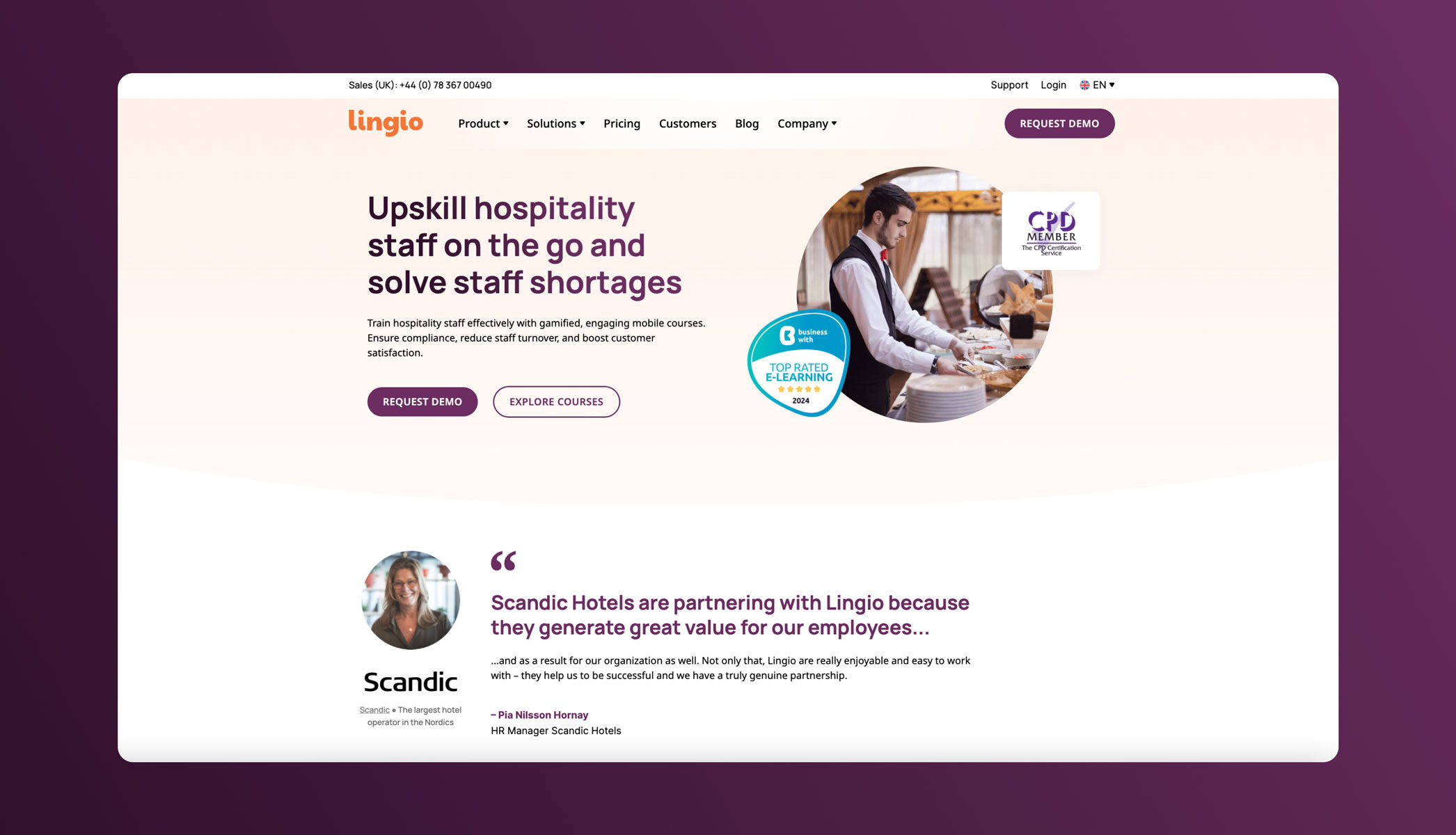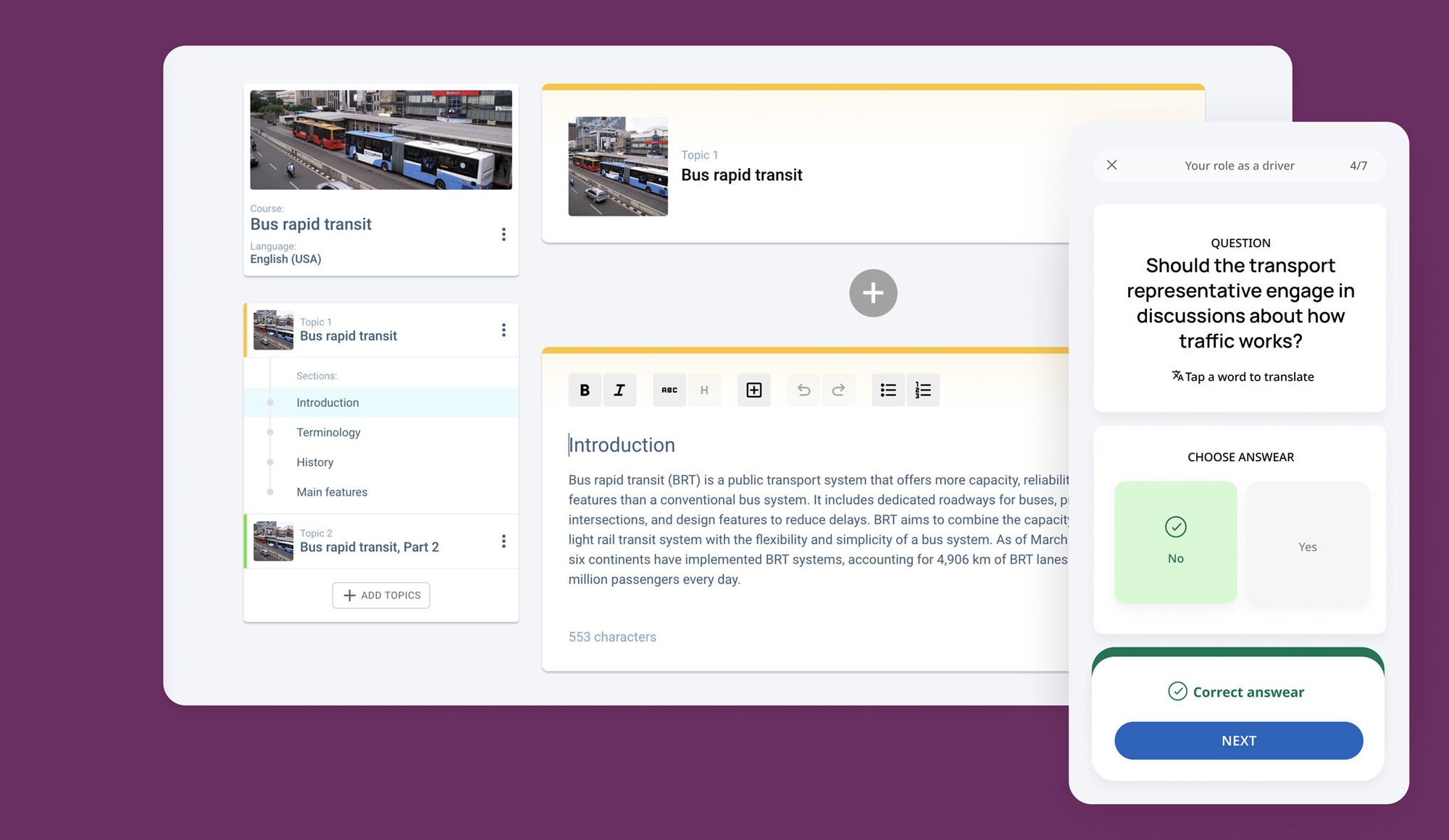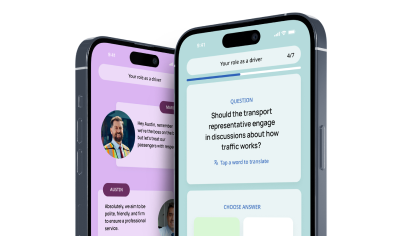6 hospitality business areas with promising AI use cases: benefits, challenges, trends and real examples covered
Below, we explore several key functional areas ripe for AI use cases in hospitality industry. For each domain, we share the top applications with benefits, an actual case study, discuss potential implementation challenges, and highlight future trends.
1. Hotel booking experiences and support
The booking process is a critical hotel touchpoint, significantly influencing guest satisfaction and conversion rates. Traditional booking systems often fail to offer personalised experiences, leading to generic offers that do not resonate with guests. Additionally, managing bookings, handling cancellations, and providing support can be resource-intensive and prone to errors. AI-powered systems can transform these processes by simplifying bookings, automating support tasks, and optimising workflows to improve efficiency and overall guest experience.
Top use cases
- Personalised booking recommendations: Analysing guest preferences and behaviour to offer tailored booking options, increasing engagement and conversion rates.
- Upselling and cross-selling: Suggesting relevant upgrades and additional services based on guest profiles and past behaviour, boosting revenue.
- AI-powered chatbots: Handling guest inquiries and booking requests 24/7, providing instant assistance and freeing up staff for more complex tasks to enhance customer service.
- Automated handling of cancellations and refunds: Managing cancellations and refunds efficiently, reducing wait times and improving efficiency in reservation management.
Real-world application example
Hilton transitioned its central reservations system into the cloud in 2020, enabling guests to book connected hotel rooms. As per this coverage by Skift, Hilton is testing several new AI-powered features to personalise guest bookings and stays further. One pilot allows guests to pre-book meals, parking, late checkout, and pet services as part of packages. These innovations aim to enhance convenience and personalisation. Hilton’s Chief Commercial Officer Chris Silcock stated that the cloud move has enabled faster innovation. Features like attribute-based shopping, tailoring rooms and amenity options to guest preferences are also being piloted to provide powerful personalisation.
Potential challenges
- Data privacy concerns: Analysing guest data raises concerns about privacy and data security.
- Dependence on data quality: The effectiveness of AI-driven personalisation heavily relies on the accuracy and completeness of the data collected.
- Integration with legacy systems: Incorporating AI technology into existing booking systems can be complex, requiring significant time and resources to ensure compatibility and smooth operation.
Future trends
- Advanced personalisation: Future systems will offer even more precise real-time personalisation of booking options and recommendations.
- Broader integration with travel platforms: Seamless integration with travel platforms like Booking.com and Expedia, offering consistent, personalised experiences across channels.
- Advanced predictive analytics: Using predictive analytics to anticipate guest needs and preferences even before they start the booking process, providing highly tailored experiences.
2. Concierge services from check-in to checkout

Concierge services are vital for personalised assistance and enhancing the overall guest experience. Traditionally, concierges relied on personal knowledge and manual processes to assist guests, often leading to inefficiencies, errors, and inconsistent service quality. AI can transform concierge services by automating routine tasks, offering personalised recommendations, and providing seamless 24/7 support.
Top use cases
- AI-powered chatbots: Offering instant assistance for guest inquiries, bookings, and requests, freeing up human staff for more complex tasks.
- Robotic concierge: Deploying robots at the help desk to provide information about hotel amenities, dining recommendations, and local attractions.
- Personalised recommendations: Suggesting activities, dining options, and services tailored to individual tastes, empowering hotels to exceed guest expectations.
- Automated itinerary planning: Creating and managing personalised itineraries based on guest interests and schedules.
Real-world application example
Here is one more AI adoption example coming from Hilton. In 2016, Hilton began testing an AI-powered concierge robot named "Connie" in partnership with IBM's Watson program. Based at the Hilton McLean Hotel in Virginia, Connie assisted guests with information about nearby restaurants, tourist attractions, and hotel amenities. Powered by Watson’s natural language processing and WayBlazer's travel information, Connie provided personalised recommendations, enhancing the guest experience.
Potential challenges
- Maintaining the human touch: Balancing AI automation with human interaction to ensure a warm, personalised experience.
- Data privacy and security: Addressing concerns about collecting, storing, and using customer data.
- Adoption and integration: Ensuring smooth integration with existing systems and training staff to use AI tools effectively.
Future trends
- Advanced personalisation: AI will become even more adept at predicting and catering to individual guest preferences, reflecting broader market trends towards highly customised experiences.
- Seamless integration with IoT: AI and IoT devices will work together to provide real-time data and enhance guest services.
- Generative AI for handling queries: According to a Gartner report, by 2025, 80% of customer service and support organisations are expected to use generative AI to improve productivity and customer experience.
3. Housekeeping and maintenance operations
Housekeeping and maintenance are pivotal to any hotel's smooth operation and reputation. Efficient management of these areas ensures guest satisfaction, operational efficiency, and cost-effectiveness. Traditional maintenance strategies are often reactive or scheduled, leading to unexpected breakdowns, unnecessary repairs, and inefficient resource use. These issues can result in poor guest experiences, delays in service, and increased operational costs. AI offers a transformative approach by enabling predictive maintenance, which uses data and machine learning to forecast equipment failures before they occur.
Top use cases
- Predictive maintenance for HVAC systems: Analysing data from IoT sensors to predict when heating, ventilation, and air conditioning systems need maintenance, preventing unexpected failures and ensuring guest comfort.
- Optimised inventory management: Forecasting supply demand like linens and toiletries, ensuring optimal stock levels and reducing waste.
- Efficient scheduling: Creating optimised housekeeping schedules based on guest check-ins and checkouts, improving efficiency and ensuring rooms are ready on time.
- Smart room technology: Implementing smart room systems to automate lighting, temperature control, and other amenities, improving energy efficiency and enhancing guest comfort.
- Automated issue reporting: Detecting anomalies in equipment performance and automatically generating maintenance tickets, streamlining the repair process.
Real-world application example
Consider a luxury resort that implemented predictive maintenance for its HVAC system. By predicting a critical component failure two weeks before it happened, the resort avoided a scenario where hundreds of guests could have been uncomfortable. This proactive approach enhanced guest satisfaction, significantly reduced operational costs, and improved reliability. Such success stories are becoming common worldwide as hotels adopt predictive maintenance strategies. From city hotels ensuring their elevators are always in service to beach resorts keeping their pools at the perfect temperature, predictive maintenance is making a difference where it matters most.
Potential challenges
- Initial investment costs: Installing IoT sensors and integrating AI analytics software can be expensive upfront.
- Data privacy and security: Handling large amounts of data requires robust security measures to protect guest information.
- Choosing the right technology: Selecting compatible and scalable predictive maintenance solutions is crucial for successful integration.
Future trends
- Integration with augmented reality (AR): Future maintenance staff might use AR glasses for real-time information and guidance during repairs, improving efficiency and accuracy.
- Enhanced predictive accuracy: AI algorithms will become more sophisticated, providing more precise maintenance schedules and resource allocation.
4. Revenue management and pricing strategies
Room pricing and revenue management are crucial for a hotel's financial stability and competitiveness. Traditionally, these areas have relied on a mix of experience, spreadsheets, and occasional guesswork, often leading to inefficiencies, suboptimal pricing, and missed revenue opportunities. AI-powered tools offer a transformative solution by leveraging data and machine learning to optimise pricing strategies, forecast demand, and manage revenue more effectively.
Top use cases
- Dynamic pricing and automated adjustments: Adjusting room rates in real-time based on demand, competitor pricing, and market conditions, and implementing price changes automatically based on predefined rules and AI-driven insights to stay competitive and responsive.
- Demand forecasting and revenue optimisation: Predicting future booking patterns and occupancy rates using historical data, real-time information, and external factors while analysing various revenue streams to ensure balanced and profitable growth.
- Personalised pricing: Tailoring offers and pricing strategies based on individual guest preferences and behaviour, enhancing guest satisfaction and loyalty.
Real-world application example
Four Seasons Hotels and Resorts employs dynamic pricing to create personalised guest packages. By considering guest demographics, length of stay, and preferences, they offer tailored bundles that include various amenities, making the overall experience more appealing and personalised. This strategy enhances guest satisfaction while optimising revenue.
Potential challenges
- Guest perception and loyalty: Frequent price changes might lead to negative guest perceptions of fairness and transparency, potentially affecting guest loyalty if customers feel they are not receiving consistent value.
- Regulatory and ethical considerations: Navigating potential regulatory and ethical issues related to dynamic pricing and personalised offers, ensuring transparency and fairness.
- Rate parity: Maintaining consistent pricing across all distribution channels can be challenging, especially in a dynamic pricing environment.
Future trends
- Sustainability considerations: AI can support sustainable pricing strategies by optimising resource allocation and reducing waste. Future trends will see AI being used to align pricing strategies with environmental goals, such as promoting stays during off-peak periods to balance energy consumption and reduce the environmental footprint.
- Ethical pricing practices: As AI becomes more integrated into pricing strategies, there will be a greater emphasis on ethical considerations, ensuring transparency and fairness in pricing. Hotels will have to develop clear policies for AI-driven pricing to maintain guest trust and comply with regulatory requirements.
- Integration with broader hotel management systems: Future AI systems will integrate more with comprehensive hotel management platforms, providing seamless data flow and holistic insights into pricing strategies and revenue management.
5. Hotel security and surveillance

Effective security and surveillance are critical for ensuring the safety of guests and staff, protecting property, and maintaining a hotel's reputation. Traditional security systems often fall short due to manual monitoring and response time limitations. These systems can lead to inefficiencies, delayed responses to incidents, and ultimately, a poor guest experience. AI technology offers transformative solutions by automating threat detection, improving access control, and providing real-time insights into potential security issues.
Top use cases
- Intelligent surveillance cameras: Utilising AI to analyse video feeds in real-time, detecting unusual activities, identifying potential threats, and alerting security personnel instantly.
- Smart access control systems: Employing facial recognition and biometric authentication to manage entry and exit, ensuring only authorised personnel and guests access restricted areas.
- Automated emergency response: Integrating AI with emergency systems to respond immediately to incidents such as fires, break-ins, or health emergencies.
- Cybersecurity enhancements: Implementing AI-driven cybersecurity measures to protect guest and hotel data from cyber threats, detect suspicious digital activities, and respond to potential data breaches in real time.
Real-world application example
Marriott’s use of facial recognition system at two locations in China in partnership with Alibaba Group is one of the notable AI in hospitality industry examples, enhancing security and reducing wait times. This innovative approach allowed guests to check in by simply scanning their faces, which the system would then match with their reservation details to complete the process without human assistance. This technology boosted security by ensuring that only verified guests could access their rooms and reduced check-in times from three minutes to one. The pilot was conducted in Hangzhou, a technological hub, and Sanya, a popular resort town, reflecting different customer environments.
Potential challenges
- False positives/negatives: AI systems, while advanced, are not infallible and can produce false positives (false alarms) or false negatives (missed detections), which can lead to unnecessary disruptions or security breaches.
- Regulatory compliance: Different regions have varying regulations regarding surveillance and data collection, including the use of facial recognition technology. Hotels must ensure their AI security measures comply with local laws and industry standards.
- Guest perception: Guests may feel uncomfortable with the pervasive use of surveillance technology, raising concerns about their privacy and the extent of monitoring during their stay. Balancing security with guest comfort is essential.
Future trends
- Integration with law enforcement: AI-driven security systems can be integrated with local law enforcement agencies to respond to emergencies, rapidly enhancing overall safety and reputation.
- Keyless entry systems: Leveraging smartphones for keyless entry, which offers robust encryption and reduces the risk of unauthorised access, will become more common.
- Robotics in security patrols and surveillance: Deploying robotics technology for autonomous security patrols and surveillance, continuously monitoring and alerting staff to unusual activities.
6. Hospitality staff training and development
Effective hospitality staff training is essential for maintaining high service standards and ensuring the smooth operation of a hotel. Traditional training methods often struggle to meet hospitality staff's diverse and dynamic needs. Challenges such as language barriers, varying skill levels, and the need for flexible training schedules can lead to inefficiencies and inconsistent training programs. AI in learning and development offers innovative solutions to these challenges.
Top use cases
- Automated course creation: Using generative AI in hospitality to quickly develop training materials such as quizzes, videos, and interactive content, saving time and resources while ensuring up-to-date and relevant training.
- Personalised learning paths: Analysing individual performance to tailor learning experiences, ensuring that each staff member receives training that aligns with their specific needs and skill levels.
- Adaptive testing: Smartly adjusting the difficulty of test questions in real-time based on learner performance, leading to more accurate assessments and a better understanding of each employee’s capabilities.
- Quick performance feedback: Providing instant feedback on training exercises and assessments, helping employees to identify and improve areas of weakness quickly.
A successful real-world application example powered by Lingio's AI

Lingio, our AI-powered employee training software, is designed to supercharge employee training, particularly for frontline workers like those in the hospitality industry. With its novel AI Course Creator tool, a gamified mobile learning app, and a powerful admin portal, you get an all-in-one learning management system to train hotel staff.
One notable success story is Scandic Hotels. As one of the largest hotel chains in the Nordic region, Scandic operates 280 locations across six countries, including Sweden, Norway, and Finland. The hotel chain faced significant challenges in training their diverse workforce, which includes employees from various nationalities and backgrounds. Traditional training methods were inefficient, and struggled to meet the needs of their staff. To address these issues, Scandic partnered with Lingio to implement AI-driven training.
Using Lingio's platform, Scandic was able to offer courses in professional Swedish tailored to the hotel industry. This helped employees overcome language barriers and improve their communication skills, which are crucial for providing excellent guest service.
Pernilla Sköld, a Service Team Manager at Haymarket by Scandic in Stockholm, noted that employees who used Lingio's courses felt more empowered and confident in their language skills. This improved their performance and enhanced their integration into the workplace.
Potential challenges
- Content quality: Generative AI can produce content that lacks depth or accuracy if not properly guided. Creating high-quality hospitality courses requires grounding AI in reliable internal materials or credible online sources.
- Technology adoption: Proper onboarding may be required to integrate AI solutions into existing training programs and ensure staff are comfortable using new technology.
Future trends
- Integration with virtual and augmented reality: AI-driven training programs will likely incorporate virtual and augmented reality to create immersive, hands-on training experiences.
- Continual learning and development: The trend towards continuous learning and upskilling will grow, with AI facilitating ongoing professional development tailored to individual career paths.
- Advanced analytics for training effectiveness: AI will provide deeper insights into training effectiveness, allowing for more precise adjustments and improvements in training programs.




